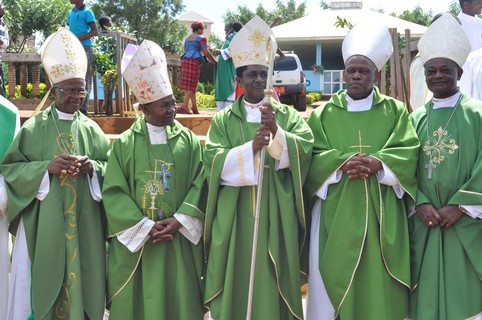Every quack lawyer would teach Yaounde that there are two contiguous domiciles is this “Africa in miniature”, namely, the Common Law domicile and the Civil Law domicile. He would explain effortlessly that the Common Law leans on two basic canons. The one is that the language of the courts applying the Common Law is absolutely English. The second indispensable component is that the law applicable is the Common Law. Flowing necessarily from that is concrete fact that the officers of the courts are versed in the Common law; or, at the least, are adequately trained in the observance of the canons of procedure and process.
Except there are recent developments, the training of member of the judiciary at ENAM conforms strictly to that dichotomy. It cannot be otherwise because, even as the Criminal Law and Labour Law are “harmonized”, the Civil Law isn’t; at least in its essence. It is no new story that, in this domain, the Francophone members of the judiciary do apply the relevant civil codes, (essentially the code civil and code de procedure civile). Their Anglophone counterparts, by contrast, apply, observe and enforce the observance of substantive law born of notorious customs that have existed from time immemorial. As for adjective law, there are the rules of the Supreme Court (of Nigeria), local Common Law instruments, and, in highly limited areas, English Law… Even in those areas where there has been some “harmonization”, the language of the Common Law courts remains the English Language exclusively as a matter of law.
In general, there is no denying that, even in very important offices in the country, it is not uncommon for a Francophone to retort pejoratively when one speaks English that “Je ne comprend pas votre patois-la”. That rubbishes even their own constitution that provides that English and French are official languages and that both are equal in status. And such criminal contempt for the constitution does get translated into the Common Law courts when Francophone members of the judiciary are appointed to these courts. Their dispensing with the legal language of the Common Law courts and their unlawful imposing of French wholly disqualifies those Francophones not only from working in those courts, but from even just being officers of the courts in question. It follows of course then that the demand by Common Law lawyers that Francophones should not be appointed to the Common Law courts has sound legal foundation. And the least Ayah Paul Abine can do is to subscribe to the lawyers’ stance without reservation; and to stand shoulder to shoulder with them for the cause!
It is all the more imperative for me so to do from comparative history. The European colonialists imposed their languages on Africans as working languages. If Francophone members of the judiciary do impose the official language they master best on Anglophones today, Yaounde may wish to bring medicine men from Rome to prove that what Yaounde does to Anglophones is less colonial than what European colonialists did to our parents!
And I do so submit!
Chief Justice Ayah Paul
Cameroun Supreme Court Advocate





